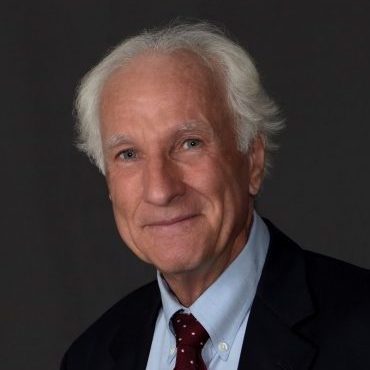Generics Industry Says No to Biden Framework
“The AAM rightly perceives this sword cuts both ways. You see, generic drug makers also have development costs—and that puts a target on their backs as well.”
In what has to be the unkindest cut of all, those expected to benefit from the proposed misuse of march-in rights so the government can impose drug price controls say they don’t support it either. The proponents promoting this hot house theory have seen it denounced by those who created the Bayh-Dole Act as being unauthorized under their law and seen evidence they can’t refute that it would have little impact on drug prices but would devastate small business entrepreneurs in all fields of federally supported research and development.
And now they’ve lost the generic drug industry.
The Bad Idea
The proposition deflating before our eyes is that if a drug derived from a federally funded invention isn’t “reasonably priced” then anyone should be able to petition the government to “march in” under the Bayh-Dole Act and license copiers. But when putting that theory into practice, every such petition over the last 20 years was rejected by Democratic and Republican Administrations as unwarranted. That dismal record continued when the Biden Administration shot down the latest petition last year and denied its appeal last month.
But hope springs eternal, so political pressure succeeded where legal reasoning failed. The Administration included price controls as a factor under its proposed march in guidelines . That generated a tidal wave of objections from universities, venture capitalists, large and small companies, manufacturers, patient advocates and virtually everyone else involved in the Bayh-Dole system promoting public/private sector R&D partnerships which helped make the United States the innovation wonder of the world.
Nevertheless, last week’s “fact sheet” unveiling the Administration’s “Strike Force on Unfair and Illegal Pricing” headed by the Federal Trade Commission and the Department of Justice sought to breathe new life into this floundering effort.
Under the heading “Making health care markets more affordable and competitive,” it says:
“In December, the Department of Commerce released a proposed framework providing guidance that agencies can consider price as a factor when determining whether to exercise march-in rights for federally funded inventions connected to prescription drugs.”
A Letter They Likely Didn’t Anticipate
But the letter from the Association of Accessible Medicines and its Biosimilars Council (AAM) commenting on the framework is a crushing blow to that narrative.
AAM “is the nation’s leading trade association for manufacturers of Food and Drug Administration (FDA)-approved generic and biosimilar prescription medicines. We aim to improve the lives of patients by advancing timely access to safe, effective, and affordable generic and biosimilar medicines.”
Their members are those who are supposed to benefit from the misuse of march-in rights so they can copy proprietary drugs. But they want no part of this crusade. The AAM rightly perceives this sword cuts both ways. You see, generic drug makers also have development costs—and that puts a target on their backs as well.
As they write:
“March-in will also introduce substantial unpredictability into the development process for generics and biosimilars. For biosimilars, prospective manufacturers must invest as much as $300 million over 6–9 years just to develop the biosimilar—which may fail clinical trials—and then must invest as much as “$10 million per suit” in patent litigation.”
If they assume these risks, what’s to stop a rival from filing another march-in petition claiming they could make it even cheaper?
The letter adds the proposed misuse of march-in rights undermines the incentives of the Hatch-Waxman Act:
“March-in has the potential to cause the loss of the single most important incentive for generic developers to challenge brand-name patents—Hatch Waxman’s 180-day exclusivity incentive. Since its introduction in 1984, Hatch-Waxman has ushered in countless lower-cost generic drugs and has achieved lasting benefits for taxpayers and patients alike. The Act enables generic manufacturers to develop products without incurring patent-infringement liability; to market products before relevant brand patents’ expiration; and to efficiently challenge brand-companies’ patents.
“Hatch-Waxman’s 180-day exclusivity provision ‘is perhaps the most significant driver of competition—and lower prices—within the pharmaceutical industry.’ Recognizing that challenging brand drugs is an expensive and risky endeavor, the Act grants 180 days of market exclusivity to the “first” generic applicant to file a paragraph IV certification. This exclusivity is the sole statutory incentive motivating generic manufacturers to challenge brand-name patents…
“It is easy to see how march-in could disrupt a generic manufacturer’s expected 180-day exclusivity. For example, 180-day exclusivity could be effectively eliminated for other first filers if one of them receives a march-in license. Those first filers will have expended a substantial amount of time and effort challenging the subject patents, all to lose their exclusivity. In these ways, march-in risks upsetting Hatch-Waxman’s carefully crafted statutory regime. By weakening incentives for generic manufacturers, march-in could lead to fewer patent challenges, resulting in delayed access to lower-cost medicines.”
The AAM also sees another problem no one else pointed out. The government might decide to license “the subject invention to itself, opening the door to government-led manufacturing.” And if you think that’s absurd, you underestimate the zealotry of those who’ve spent decades promoting their rapidly unraveling theory.
A ‘Novel’ (aka Nonsense) Interpretation
I had to smile at their closing comment:
“AAM thanks NIST for the opportunity to comment on NIST’s proposed, novel interpretation of the Bayh-Dole Act. Based on the ramifications we have outlined above, AAM opposes the suggested use of price as a reason to exercise march-in rights.”
A “novel interpretation of the Bayh-Dole Act”—I wish I’d thought of that line. This is one “novel interpretation” that deserves to be junked. It’s hard to see who stands behind it now — other than its discredited authors.
Image Source: Deposit Photos
Author: Gudella
Image ID: 26186269
Joseph Allen
Joe Allen served on the U.S. Senate Judiciary Committee for Senator Birch Bayh (D-IN) securing passage of the Bayh-Dole Act which fostered R&D partnerships between universities and U.S. industry. The […see more]






